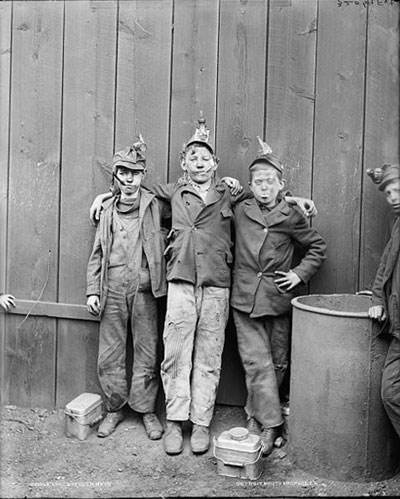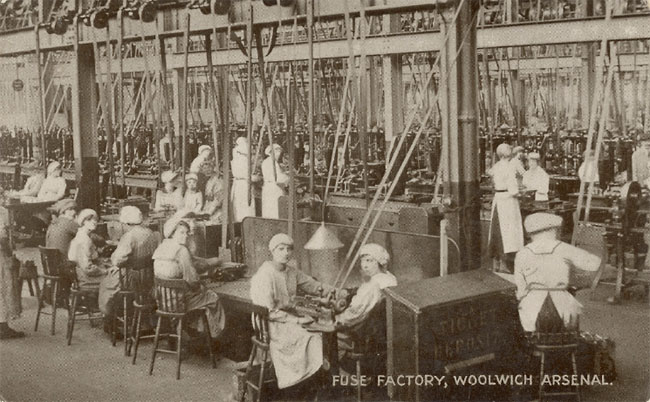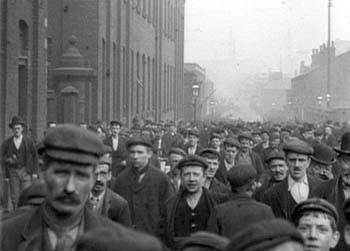
Source: Breaker Boys, Kingston, PA 4a16385a original, Library of Congress
For many years, most Americans agreed with Smith, and the United States operated in a Laissez-Faire Economy. It was not until the 1800's that society began to demand the government regulate business.
So what caused this shift in public opinion?
While the industrial revolution brought about many changes, not all of them were for the better. Many factories had very poor – if not dangerous – working conditions. There was no protection for workers, and if a person got sick or hurt and could not work (even if it was the company's fault), he or she was fired and replaced immediately. Because the industrial revolution eliminated the need for highly skilled workers in many fields, a lot of people were left without work and so the jobs that were available paid very little. This increased the gap between the rich business owner and his overworked, underpaid workers.
Below are pictures of what conditions the average factory worker endured, including children.

Source: Breaker Boys, Kingston, PA 4a16385a original, Library of Congress

Source: Workers in the fuse factory Woolwich Arsenal, author unknown, wikimedia commons

Source: MandK Industrial Revolution 1900
Consumers did not always benefit from the changes brought by the industrial revolution. While industrialization did bring about more products and cheaper prices, the quality of the products was not always very good. Very often producers would lie about the safety of the products they were selling.
Producers, on the other hand, embraced the freedom that the Free Enterprise economy granted them. In their minds, Social Darwinism was at work. The strong would survive and become wealthy while the weak would fall to the wayside or work for the rich. Many businessmen felt that their hard work and new ideas should be rewarded, not limited, by the government and that they were the reason that many industrialized countries were becoming strong world powers.
![]() Below is a list of statements. Click on the correct category of who was most likely to have made each statement: Consumers (people who buy products), Producers (people who made products), or workers (people in the factories for the producers).
Below is a list of statements. Click on the correct category of who was most likely to have made each statement: Consumers (people who buy products), Producers (people who made products), or workers (people in the factories for the producers).